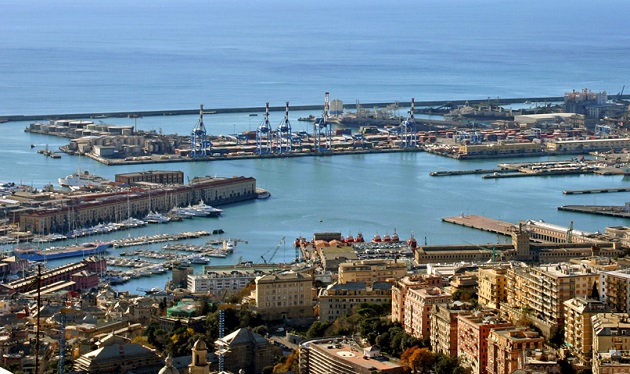Genova, Ireland and the spiritual landscape of Europe
Post-Christian Europe needs followers of Jesus who understand that the Gospel is powerful in itself. We should not hold onto the privileges of old religious structures.
21 AUGUST 2018 · 18:14 CET

The disaster in Genova showed, yet again, that some religious traditions still take place as if cultural Christendom was not already part of Europe's past.
The state funeral of non-confessional Italy was lead by the Catholic authorities, despite the fact that there were non-religious people and believers of other faiths among the victims – one, Stella, was a member of an evangelical family.
As it happened earlier with the earthquakes of Aquila and Amatrice, it was “assumed that everyone is Catholic and that the Catholic Church acts on behalf of the state”, Italian evangelicals say.
The “blurred” lines between the state and the Church structures are a symptom of something deeper. Both politicians and the established Church seem not to understand that the spirituality of many people is no longer subdued to the rites of the national majority religion.
The visit of Pope Francis to Ireland is another example of this shift. The masses and the merchandising will for some days distract from the profounder reality of secularism.
Millions stopped trusting the big religious institutions, aware of how these have often served themselves and failed to offer the Good News of Christianity. As Archbishop Diarmuid Martin said: “The [Roman Catholic] Church in Ireland struggles to find a new place in Irish society and culture”.
THE GOSPEL THAT IMPACTED EUROPE
It is interesting to look at how the first Christians in Europe lived out their faith, only decades after the death and resurrection of Jesus Christ. It was not from privileged positions that they “caused trouble” (Acts 17:6) in many cities, but from the margins of a hostile society.
From the beginning, these first Christians engaged with the public square. We read in the New Testament that they expounded their message openly and contrasted it with the ideologies of the time. They understood that their life had to show how Jesus was a better King who had come to redeem everything, offering justice, forgiveness and a definitive hope.
But these first communities did not aim to occupy the structures of power (be they political, religious or financial) as a tool to advance their ideas. To the contrary, they depended on the Holy Spirit and turned whatever happened to them into mission opportunities.
The post-Christian Europe needs followers of Jesus who understand that the Gospel is powerful in itself to change lives and transform societies. But this will not happen by holding onto the privileges of old religious structures.
Evangelical Christians have the opportunity to follow the example of the primitive church. The old continent needs Christians with real answers, specially when whole societies are faced with the question marks of suffering, death, and the ultimate purpose of life.
Published in: Evangelical Focus - Editorial - Genova, Ireland and the spiritual landscape of Europe
